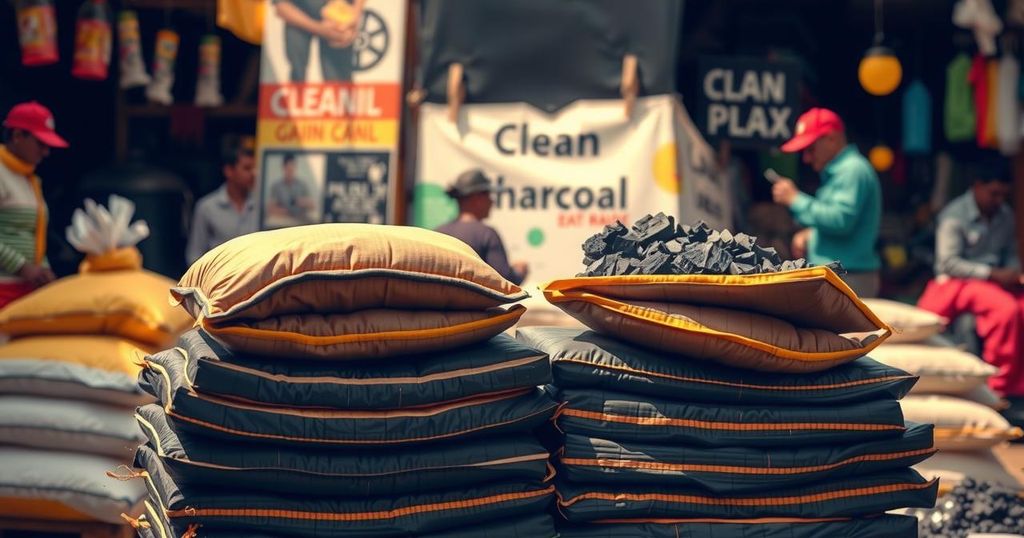Surge in Charcoal Sales in Tanzania amidst Clean Energy Initiatives

Charcoal sales in Tanzania have surged to Sh5.73 billion, doubling from last year, despite efforts toward clean energy. The report by the Bank of Tanzania indicates significant regional disparities in sales. Experts emphasize the need for public awareness, accessibility, and affordability of clean energy alternatives to reduce charcoal dependency and meet future energy goals.
A recent report from the Bank of Tanzania (BoT) indicates a significant rise in charcoal sales, reaching Sh5.73 billion, a 100 percent increase from Sh2.94 billion during the same period last year. Despite efforts to promote clean cooking energy, these sales underscore the persistent reliance on charcoal in Tanzanian households. However, there was a notable decline of 39.30 percent in sales compared to the previous quarter, suggesting seasonal fluctuations in consumption patterns.
The BoT’s Consolidated Zonal Economic Report, published in March 2025, has prompted energy sector stakeholders to propose measures to reduce charcoal consumption. Recommendations include public awareness campaigns on clean energy alternatives and improvements in the access and affordability of clean energy sources. Tanzania aims for 80 percent of its population to utilize clean cooking energy by 2034, with a focus on promoting cooking gas.
According to the report, the South-Eastern zone led charcoal sales at Sh3.68 billion, comprising 64.22 percent of national sales. The Central region followed with Sh856.6 million, while the Northern region recorded Sh775.6 million. The Lake Zone and Dar es Salaam reported the lowest sales of Sh410.9 million and Sh12.6 million, respectively.
Dr. Lutengano Mwinuka from the University of Dodoma highlighted the limitations of clean energy access in rural areas. He advocated for the promotion of energy-efficient stoves and raising awareness about alternative energy sources such as biomass to minimize charcoal reliance. He underscored that initiatives must address rural challenges and not solely focus on urban environments.
Dr. Donald Mmari, Executive Director of Repoa, concurred that awareness initiatives have inadequately reached rural demographics and that accessibility and affordability of alternative energy are crucial.
Furthermore, Professor Aurelia Kamuzora from Mzumbe University suggested conducting studies on Tanzanians’ financial capabilities to ensure gas remains an economically viable energy option. She noted that “charcoal is still seen as a more affordable option compared to gas,” highlighting the necessity of lowering gas prices to encourage a switch from charcoal.
Dr. Mmari called for affordable and accessible clean energy solutions, especially in rural areas, while Dr. Mwinuka proposed revising gas pricing policies to further incentivize the adoption of clean energy.
These comprehensive measures can support Tanzania’s transition towards cleaner energy while simultaneously addressing the high demand for charcoal and the economic realities of its citizens.
The surge in charcoal sales in Tanzania, as revealed by the Bank of Tanzania, signifies a critical challenge in the transition to clean cooking energy. With a notable increase in demand juxtaposed against efforts to promote alternatives, stakeholders emphasize the importance of public awareness and improved affordability of clean energy solutions. Addressing pricing policies and ensuring access in rural areas will be crucial in achieving Tanzania’s goal of clean energy utilization by 2034.
Original Source: www.thecitizen.co.tz








